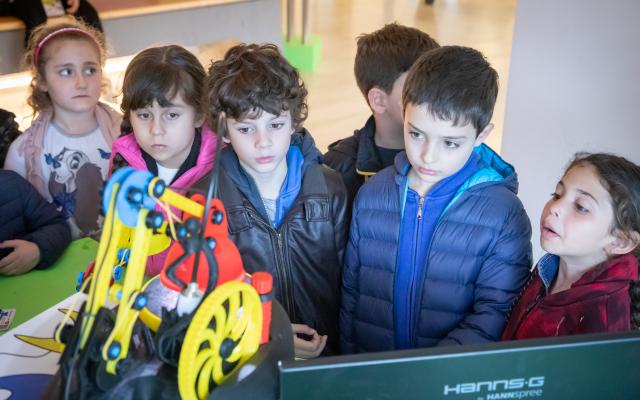Edu4AI: the experience of an Italian teacher in Germany
How does one distinguish a phrase modifying a subject from one used as an adverb? Grammatical analysis, which has been progressively abandoned along with the study of Latin, if often considered the Achilles’ heel of Italian students. However, there is a way to help students acquire the logical tools that are traditionally associate with this skill …
In an interesting article on the contribution that AI can provide to Italian schools, Francesco Beltrame Quattrocchi, Professor of Bioengineering at the University of Genoa, suggests that “the technology referred to as artificial intelligence could easily introject a structured and methodological knowledge such as grammatical analysis,” which is “essential for the development of thought, associations amongst concepts and language, to write, to read and understand, to argue and to connect memorized information” [See (in Italian): Scuola, l’IA contro il “danno formativo”: così compensa la scomparsa di analisi logica e latino].
The objective of European project Edu4AI - Artificial Intelligence and Machine Learning to Foster 21st Century Skills in Secondary Education (Erasmus+ Programme) aims to develop a national and European level good practice for education to artificial intelligence at school. In Italy, the programme is coordinated by the Fondazione Mondo Digitale.
Professors from around Europe have been involved in experimental experiential and collaborative training activities (both as learners and teachers) with the objective of guiding youth to an aware and responsible use of data and technology.
On July 4-6, in Weil der Stadt in Germany, a group of professors participated in a three-day workshop to share and reflect on their experiences with the implementation of pilot projects on artificial intelligence at school.
Maria Teresa Sorrenti, a professor at the Istituto paritario I. Newton in Tremestieri Etneo (Catania) shared her experience with us:
“The initiative aimed to share didactic experiences on various applications of machine learning and artificial intelligence techniques with partners from Italy, Spain, Germany and Greece. I presented an application based on a voice-recognition module (basically a microphone and Arduino chipset) that after a training process allows the user to implement voice commands for simple actions such as turning lights on or off and opening doors. It’s easy to imagine how this could help people with disabilities, for example. This application was developed together with a class of students, and I had already positively assessed the active involvement of students in the application of artificial intelligence to practical problems.”
Prof. Sorrenti has already participated in on-line training events between March and November 2021 but emphasised that in-presence training “was far more involving.” Direct interaction with project partners and other teachers allowed for a true exchange of competencies and good practices.
“I hope that similar initiatives may be repeated with a certain frequency as they drive new project ideas, and notwithstanding the fact that they require a certain commitment in the development and implementation phases, they provide a vast personal enrichment with benefits for local didactic activities in schools.”




